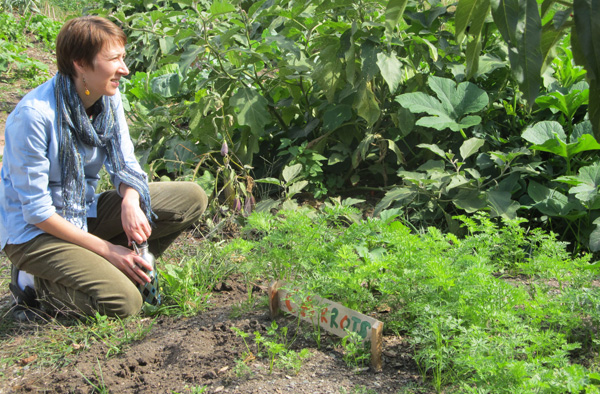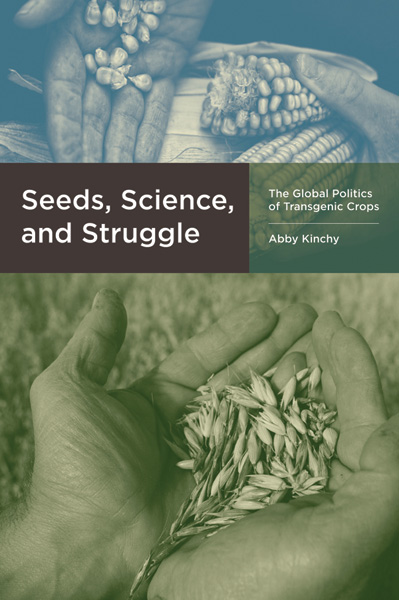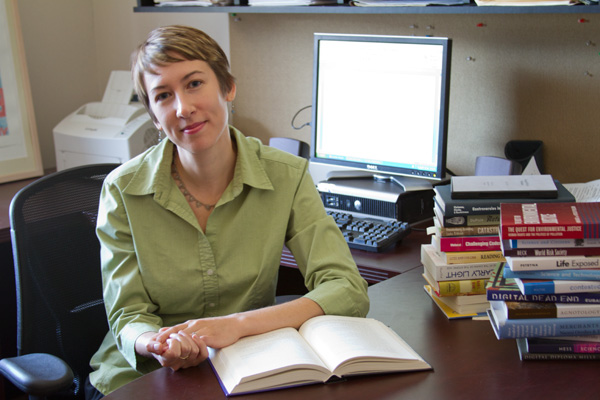Politics of the Plate
Abby Kinchy ’96 wants you to think twice about what’s on your dinner plate.

In her book Seeds, Science and Struggle: The Global Politics of Transgenic Crops (MIT Press, 2012), she sets out to explore a type of food that is getting a lot of attention lately: transgenic—or genetically engineered—food. Such fare has been entrenched in the American diet since the first delayed-ripening tomato went to market in 1994.
“When you hear discussion in the media, it’s about whether the food is safe to eat,” says Kinchy, assistant professor of science and technology studies at Rensselaer Polytechnic Institute in Troy, New York. “That’s an incredibly important question, obviously, but that’s only one part of the story about why genetically engineered food is so controversial, and why so many people are trying to develop alternatives or put a stop to it. This is a continuation of decades of struggle against industrialized agriculture.”

Kinchy says that agribusiness continues to impose an American model of agriculture on the world, one that limits food production to a small number of “huge” farms. It involves a system that relies heavily on mechanization, chemical fertilizers and herbicides, and genetically modified seeds that are standardized to the point that there’s “very little diversity in the seed supply.”
Agriculture biotech giants have been criticized in recent years for creating genetically modified seeds that guarantee high crop yields but that are too genetically uniform. That practice could fuel “mass extinction” of thousands of other plant species whose sheer variety gives food production a strong defense against disease and climate change, according to the Global Crop Diversity Trust.
“Diversity is good for long-term sustainability,” Kinchy explains. “The more kinds of seeds that we’re growing, and the more genetic diversity we have, the more resilient we’ll be. Diversity means more possibilities for survival.”
But there are other downsides, Kinchy explains: “Not only is genetically engineered food bad for the environment, it’s bad for our society and rural communities. It pushes people off the land and forces migration from rural communities to cities where people are then part of a labor force that’s very different from rural farming.”

Her book considers, as an alternative, the sustainable agriculture movement in the United States, Mexico, and Canada—including the trend toward organic farming and the centuries-old practices of rural and indigenous communities.
Kinchy, who majored in Science, Technology and Society, says it was at Vassar that she first considered questions surrounding the global food supply and population growth. “I was exposed to critical perspectives on the view that we’re going to run out of food because our population is growing,” she says. “I started looking at alternatives to that thinking. As it turns out, we see food shortages not because we don’t have enough food, but because our systems of food production and distribution are unjust.”
In such Rensselaer courses as Food, Farms and Famine; Environment and Society; and Science, Technology and Social Movements, Kinchy now encourages her own students to think critically about the production of food. She’s hoping some of them will become clarions for change, too.
Andrew Faught is a freelance writer in Fresno, California. He previously was a staff writer for Occidental College in Los Angeles.